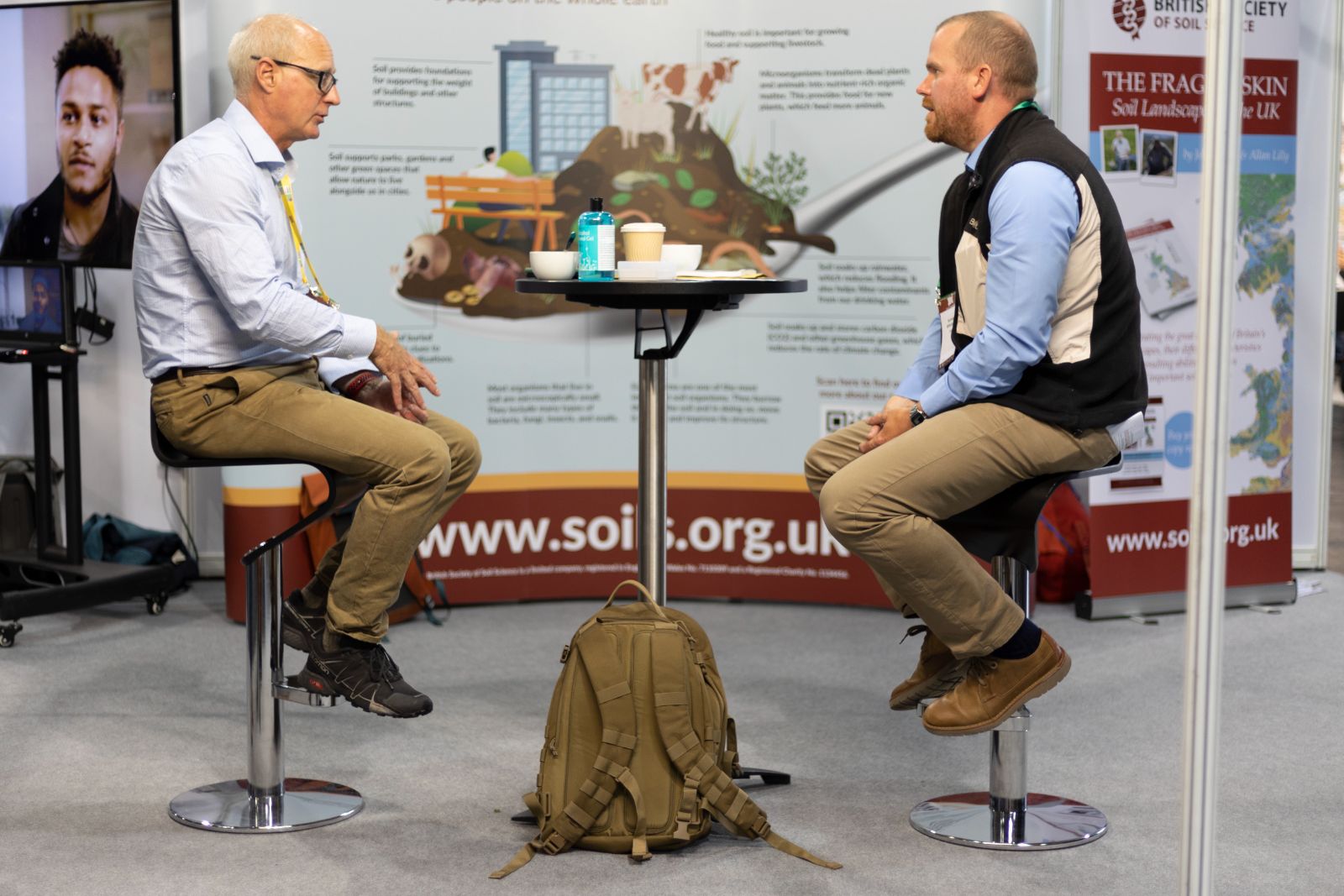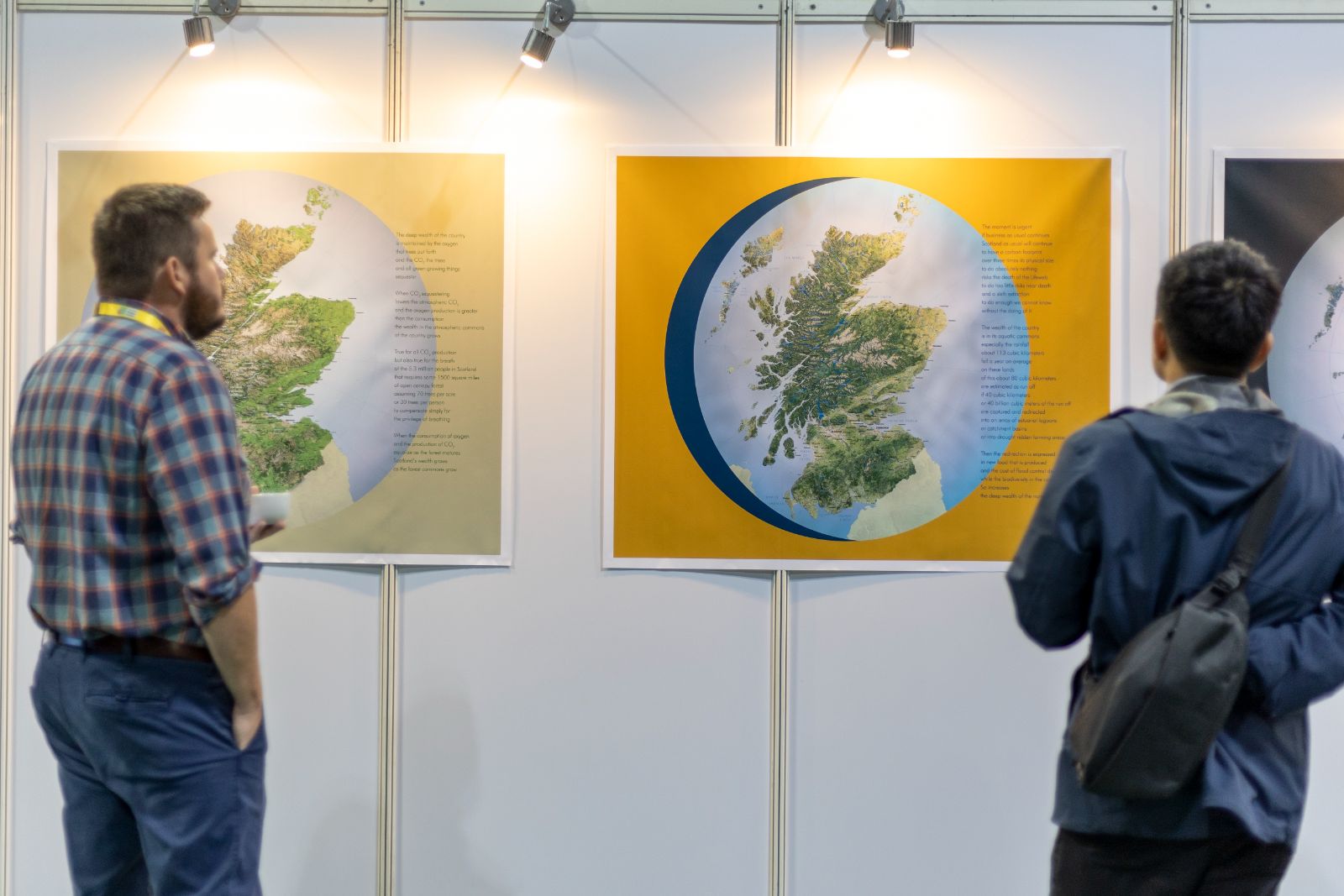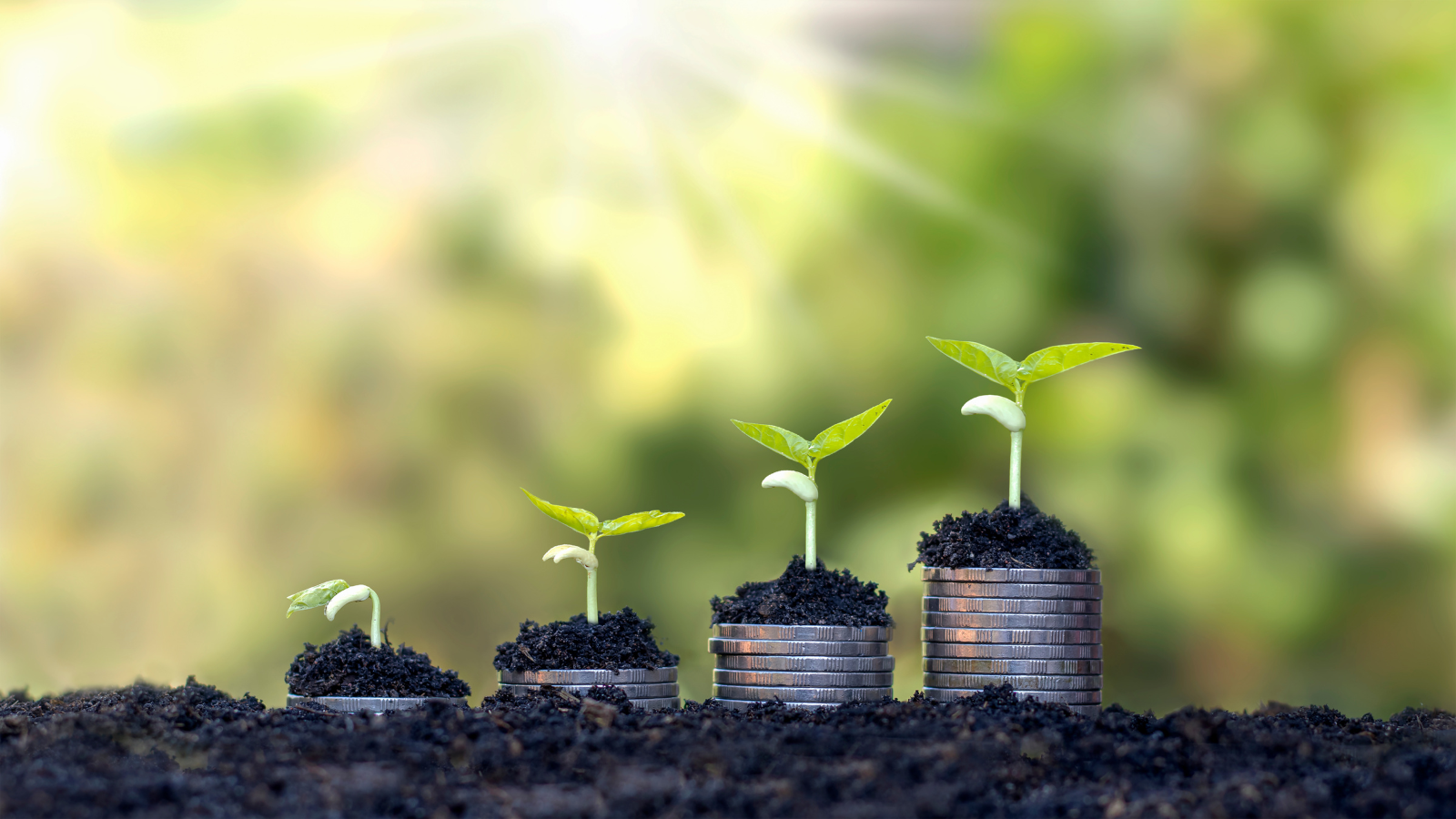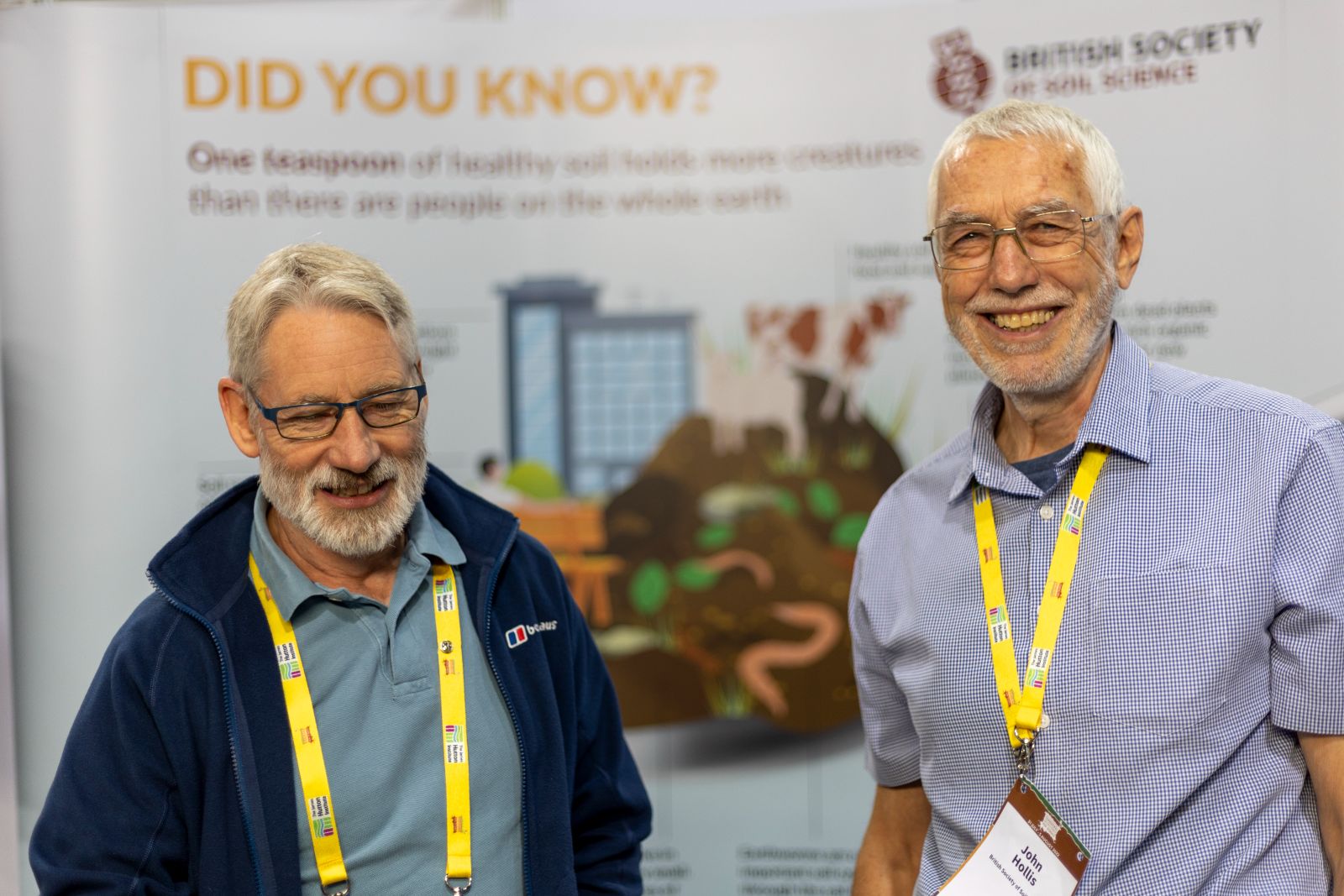The Environment behind the Congress
Managing our environmental impact was a core pillar of the World Congress of Soil Science. As an environmental charity, with members who understand the importance of environmental sustainability, we were clear throughout the Congress’ development that consideration of our impacts and how they could be reduced and mitigated, would be a priority.
World Congress of Soil Science
Environmental Sustainability of WCSS
We knew when we agreed to host the World Congress of Soil Science (WCSS) in Glasgow, it would have a significant environmental impact. Sustainability therefore became one of our pillars for the Congress and wherever possible we aimed for the event to be sustainable. At a strategic level, this included commissioning what we believe to be one of the first ever Environmental Impact Assessments (EIA) of an international congress. Delivered by Alexandre Couvez, a Masters’ student at Cranfield University, the EIA is being peer-reviewed with the aim of being published in a business and tourism journal in 2023. At an operational level, we embedded sustainability into all aspects of our operations: from choosing congress food which was 90% locally sourced, to providing non-plastic merchandise made in the UK and either recyclable or compostable on disposal.
We came across significant challenges on our journey: although we used compostable packaging for our lunches, Scotland did not have recycling facilities for compostable packing locally, meaning it was disposed of into landfill. In the meantime, the challenges we came across during the delivery of the Congress as well as our successes, have been turned into our document, Delivering Sustainable International Events. The document, which has been co-branded with the International Congress and Convention Association (ICCA), was launched by Congress Trustee Sarah Garry, during ICCA’s 61st Annual Conference in November 2022.
Our recommendations, which set out the key considerations for both event organiser, destinations and governments, has been well received by the industry where there is a need for case studies from organisations such as ours, which have a clear idea of what it means to live by sustainable values. We will continue to encourage others to consider our recommendations in their event planning, to ensure a congress legacy which if implemented by the international events sector which is worth $1,135.4 billion, will have a significant impact on humanity’s global impact.
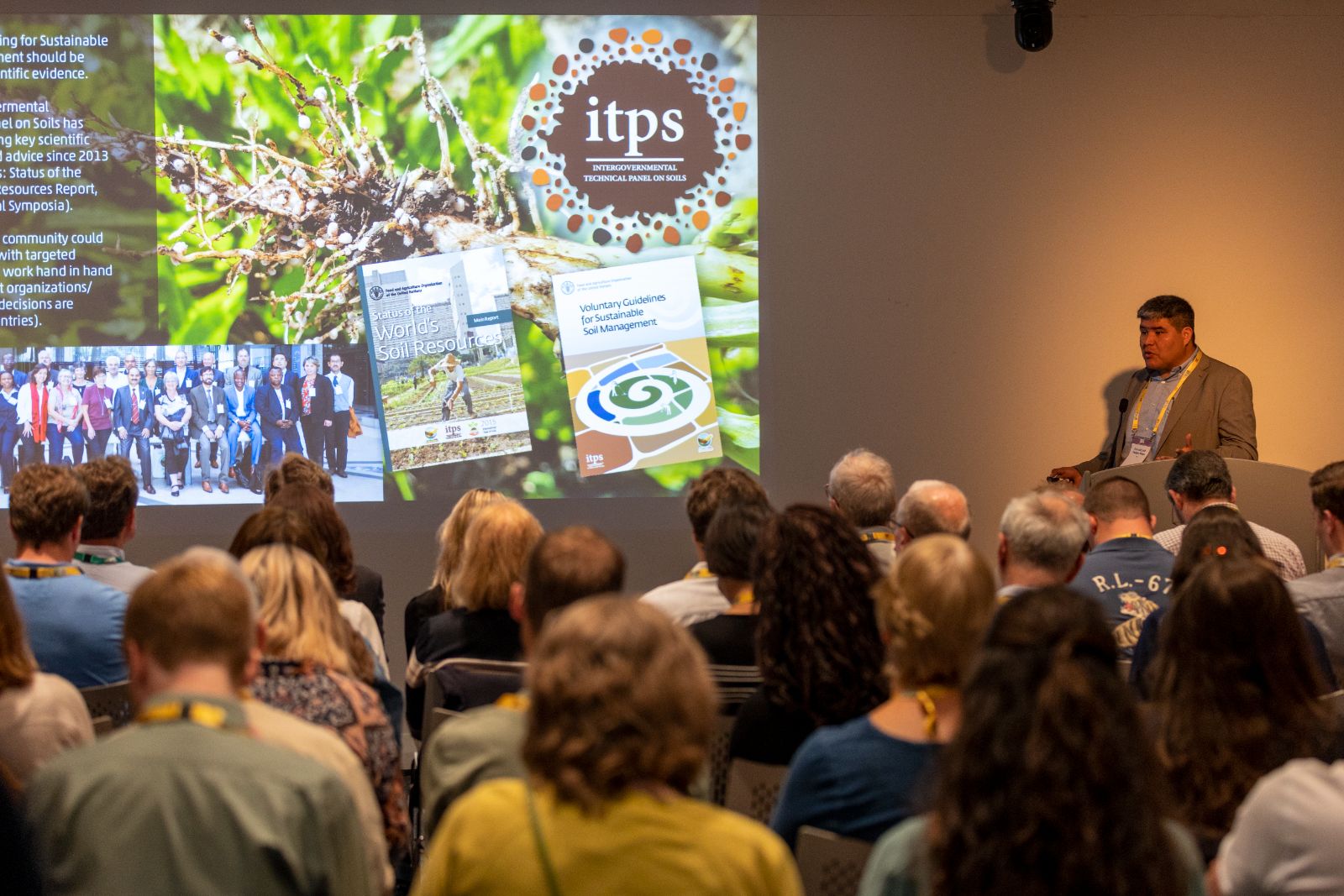
World Congress of Soil Science
Impact assessment
Understanding the importance of soils to healthy environmental functioning, we considered the environmental impact of hosting WCSS22.
We took steps such as commissioning an Environmental Impact Assessment (pending publication), developing an internal procurement policy focusing on circular economy principles, reducing food waste and using local suppliers, amongst others.
Our sustainable methods have seen us win the Best Environmental, Social and Governance Award at the ICE Awards (UK and Germany) 2023 and shortlisted for Positive Impact and Sustainable Initiative awards at the M&IT Awards, Best Sustainable Conference at the ABPCO Excellence Awards 2022, Best Association Event at the Conference and Events Awards.
World Congress of Soil Science
Actions taken to Minimise impact
Impact of WCSS 2022 in numbers;
- Based on 1,700 delegates in person and online, our environmental impact assessment indicated that the event took an equivalent of 200 UK peoples’ Greenhouse Gas Emissions for the year, equivalent of 350 UK peoples’ water consumption for the year
- 84% reduction in food waste between days 1 and 3 of the Congress
- Clearly set out CO2 impact for all meals provided, allowing delegates to choose their lunch based on the environmental impact
- Developed an environmental statement which all direct contractors were asked to support
- Reduced the carpet we used by not carpeting walkways in the exhibition hall. Any undamaged, used carpet was redistributed to social housing, with other carpet being recycled.
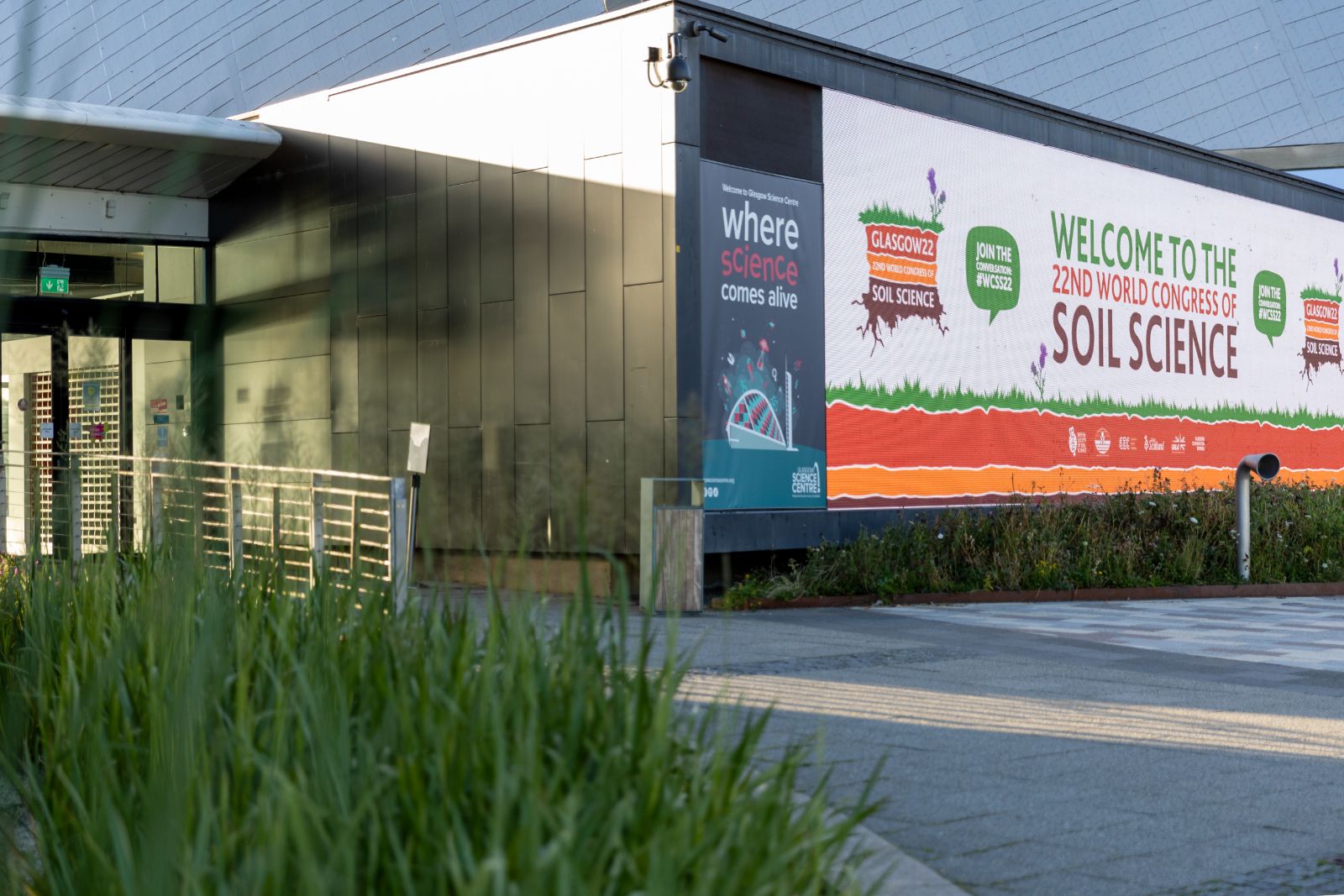
World Congress of Soil Science
Recommendations
Our environmental research should be used as a baseline which future congresses aim to improve upon.
We faced significant challenges, including Covid and sometimes had to compromise in the face of operational and logistical constraints. We hope that by being transparent, sharing data and materials, we will aid others in improving from the legacy we have left.

